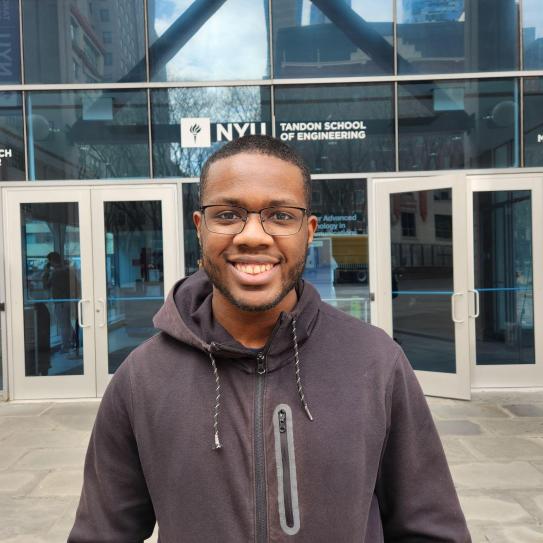
What inspired you to pursue a STEM-based degree? How did you discover your interest in the field?
I was always interested in mathematics and computers, but I was moreso intrigued by spacecrafts when I was younger. The “magic” behind those complex structures were something that can be explained through STEM.
Who within STEM serves as an inspiration for you?
Neil deGrasse Tyson inspires me because of his venture of encouraging people to feel comfortable asking questions. He’s able to accomplish so much in the field of STEM and having someone who looks like me at his position is comforting.
How would you describe your experiences as a Black and/or Latino student at the School of Engineering?
Being a Latino student at the School of Engineering was a shock at first since there weren’t many people like myself. However, throughout the years, I’ve been able to surround myself with amazing peers and staff that make me feel included.
What courses were challenging for you? How did those courses better prepare you for what’s ahead?
Second and third year CS courses have been somewhat challenging, but sciences such as Chemistry and Physics have been really difficult. They helped me prepare by forcing me to have moments outside of instructional time and study for longer periods.
What are your research/professional career goals?
I want to eventually work at a company that can allow me to be creative and to have a leadership role in the future. I also want to be able to create something that people can use regularly that isn’t harmful.
As an underrepresented minority student, is there something that you recognize more now that you didn’t think of before attending Tandon?
I realized that we need more avenues in which to expose minorities to STEM. Demystifying the “requirements” needed to be someone in STEM should be addressed more often.
How important is it for incoming minority students to utilize their resources (i.e. professors, counselors, advisors, tutors, etc.)?
It is super important to utilize academic resources in college, regardless of the discipline. Asking questions and interacting with professors, specifically, shows motivation and character, as well as helps with lightening the load of heavy coursework when talking to experts and intermediates about it. Also, talking to advisors is incredibly helpful since they can help you manage your future in the institution and beyond.
What advice would you offer to Black and Latino men who are interested in the STEM field?
Put a hundred and ten percent effort into the things you do in the STEM field. Our perspective on the world is unique, important, and necessary if we want to create change – and change can only happen through hard work.

